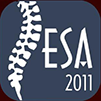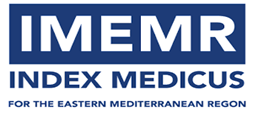Subject Area
Trauma, Minimally invasive procedures
Document Type
Original Study
Abstract
Background Data: Management of thoracolumbar fractures remains controversial. Little has been published in the literature about the use of percutaneous pedicle screws in the management of thoracic and lumbar spine fractures.Purpose: To assess the efficacy and safety of percutaneous pedicle screw fixation in the management of thoracic and lumbar spine fractures and to report the clinical and radiological results. Study Design: A prospective cohort of thoracic and lumbar spine fractures treated by percutaneous fixation. Patients and Methods: Seventy eight patients with thoracic and lumbar spine fractures, 60% males and 40% females, with mean age of 31.5 years, without neurologic deficit,were treated by percutaneous transpedicular fixation and ligamentotaxis. Followup ranged from 6 to 40 months (mean 21 months) with clinical and radiographic evaluation. Results: Mean hospital stay for isolated spine fractures was 3 days. 63% required no oral analgesia upon discharge. Mean VAS for back pain at latest follow up was 1.6. All patients returned to some sort of employment. Improvement in local kyphosis radiological measurement was achieved.Conclusion: Percutaneous pedicle screw fixation is a safe and effective method for the management of selected cases of thoracic and lumbar spine fractures. All benefits of minimally invasive surgery are met in this technique. Limitations are fractures with gross instability where fusion is needed, and patients with a neurological deficit where a formal decompression is mandatory. (2012ESJ032)
Keywords
Minimally invasive, fracture, spine, percutaneous, thoracolumbar, Pedicle Screws
How to Cite This Article
Taha, Hossam
(2012)
"Percutaneous Stabilization of Thoracic and Lumbar Spine Fractures. Clinical and Radiological Outcome.,"
Advanced Spine Journal: Vol. 4
:
Iss.
1
, Article 5.
Available at: https://doi.org/10.21608/esj.2012.3801























